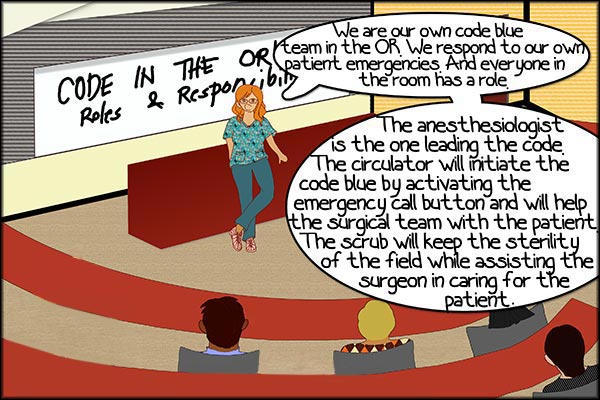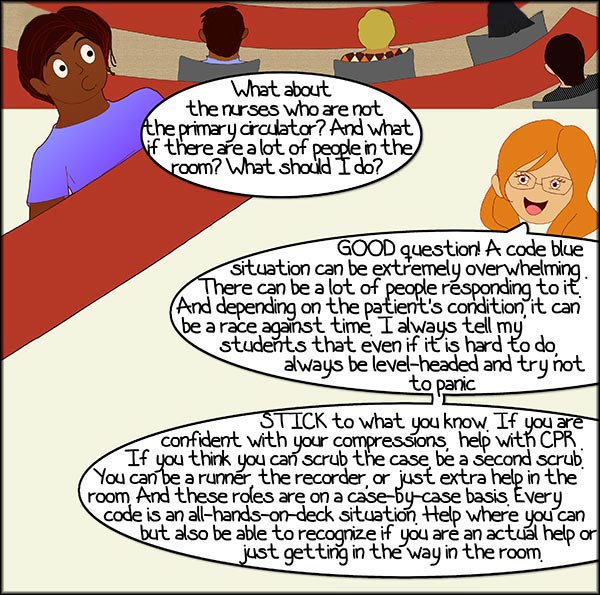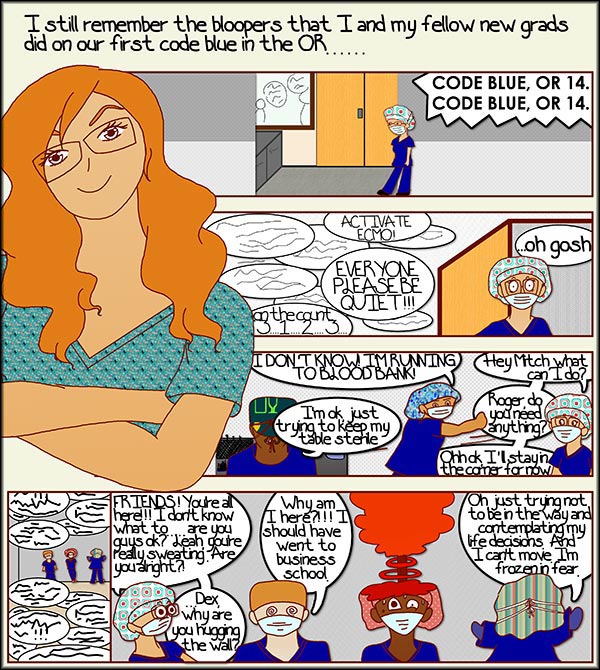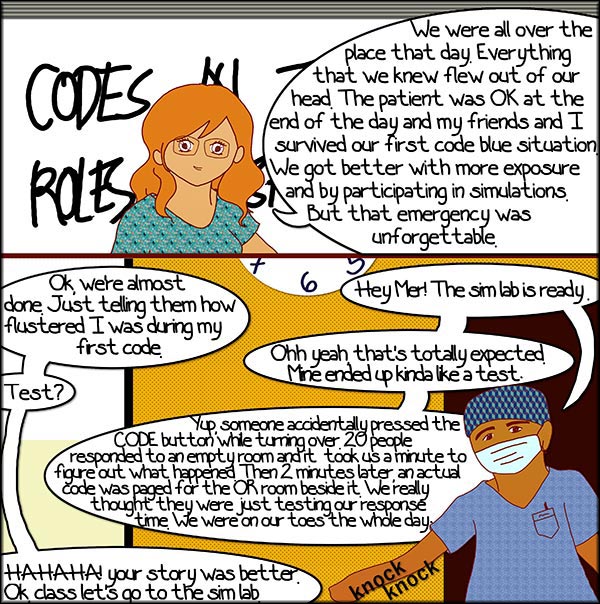In Scrubs & In Stitches: The Code Blue
By: Lovely Rose Romero, BSN, RN
Published: 5/17/2024
A humorous look at working in the OR, including managing your first Code Blue. View comic text transcript.





In Scrubs & In Stitches - Transcript
Meredith: We are our own code blue team in the OR. We respond to our own patient emergencies, and everyone in the room has a role. The anesthesiologist is the one leading the code. The circulator will initiate the code blue by activating the emergency call button and will help the surgical team with the patient. The scrub will keep the sterility of the field while assisting the surgeon in caring for the patient.
Student: What about the nurses who are not the primary circulator? And what if there are a lot of people in the room? What should I do?
Meredith: GOOD question! A code blue situation can be extremely overwhelming. There can be a lot of people responding to it, and depending on the patient’s condition it can be a race against time. I always tell my students that even if it is hard to do, always be level-headed and try not to panic.
STICK to what you know. If you are confident with your compressions, help with CPR. If you think you can scrub the case, be a second scrub. You can be a runner, the recorder, or just extra help in the room, and these roles are on a case-by-case basis. Every code is an all-hands-on-deck situation. Help where you can but also be able to recognize if you are an actual help or just getting in the way in the room.
Meredith: I still remember the bloopers that I and my fellow new grads did on our first code blue in the OR…
< She remembers: >
Overhead Speakers in Hospital: Code Blue, OR 14. Code Blue, OR 14.
“Activate ECMO”
“Everyone please be quiet.”
“On the count, 3…1, 2, 3”
Meredith: Stepping into OR…. “Oh Gosh. Hey Mitch, what can we do?”
Mitch: “I don’t know, I’m running to blood bank!”
Meredith: “Roger, do you need anything?”
Roger: “I’m OK just trying to keep my table sterile.”
Meredith: “Oh heck, I'll stay in the corner for now."
“Friends! You’re all here! I don’t know what to do… are you guys ok? Leah, you’re really sweating, are you alright? Dex, why are you hugging the wall?”
Dex: “Why am I here?!!! I should have gone to business school.”
Leah: “Oh, just trying not to be in the way and contemplating my life decisions. And I can’t move. I’m frozen in fear.”
< Back in the classroom >
Meredith: We were all over the place that day. Everything that we knew flew out of our head. The patient was OK at the end of the day and my friends and I survived our first code blue situation. We got better with more exposure and by participating in simulations, but that emergency was unforgettable.
Surgeon: Hey, Mer! The sim lab is ready.
Meredith: Ok, we’re almost done. Just telling them how flustered I was during my first code.
Surgeon: Oh yeah, that’s totally expected. Mine ended up kinda like a test.
Meredith: Test?
Surgeon: Yup, someone accidentally pressed the CODE button while turning over. Twenty people responded to an empty room, and it took us a minute to figure out what happened. Then two minutes later an actual code was paged for the OR room beside it. We really thought they were just testing our response time. We were on our toes the whole day.
Meredith: HAHAHAH - your story was better. OK, class, let’s go to the sim lab.

